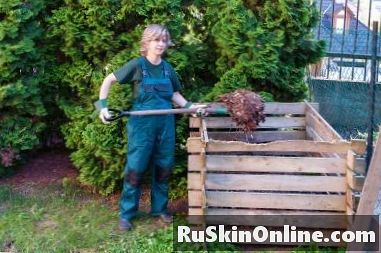
Content
- Dig compost at least once a year
- Why dig up the compost?
- The best time to dig up
- Working with two compost piles
- This is how you dig the compost properly
- Tips

Compost should be dug up once a year
Dig compost at least once a year
In order for the compost to become available quickly and contain many nutrients, it needs appropriate care. This includes the digging that takes place at least once a year. When should the digging be on the program and how do you do it?
Why dig up the compost?
Compost rotted very unevenly. Inside, the temperatures are highest, so there the rotting runs much faster.
By digging, mix the components well together. The microorganisms are thereby stimulated particularly strong.
By the way, you make unpleasant compost pests and rats uncomfortable.
The best time to dig up
How often you dig up the compost is a matter of time and effort. But once a year, you should grab the shovel.
The best time for the first digging a year is spring, when the compost has thawed.
In spring, you will have ready-made compost for the fertilization of your garden plants.
Working with two compost piles
Savvy gardeners have at least two compost piles in the garden. The already almost mature compost is stored on one, while the other is filled fresh.
When digging, the partially rotted components are sifted out and re-composted.
This is how you dig the compost properly
When digging up the compost, it is important to sift out mature compost and to shift the layers from the outside in, and from the top to the bottom. This creates a uniform rotting. The compost is ripe faster.
The sifted out not yet rotted material is placed on the empty composter. Pour a few scoops of ripe compost over it. This so-called "vaccine" acts as a jump start and brings the beneficial microorganisms in the new compost heap.
The mature compost is either incorporated into the soil or spread around the garden plants.
Tips
A large garden sieve is essential for proper composting. Through the coarse-meshed sieve the finished compost falls down, while not yet mature material remains on top. The sieve you can easily make yourself from rabbit wire and wooden slats.